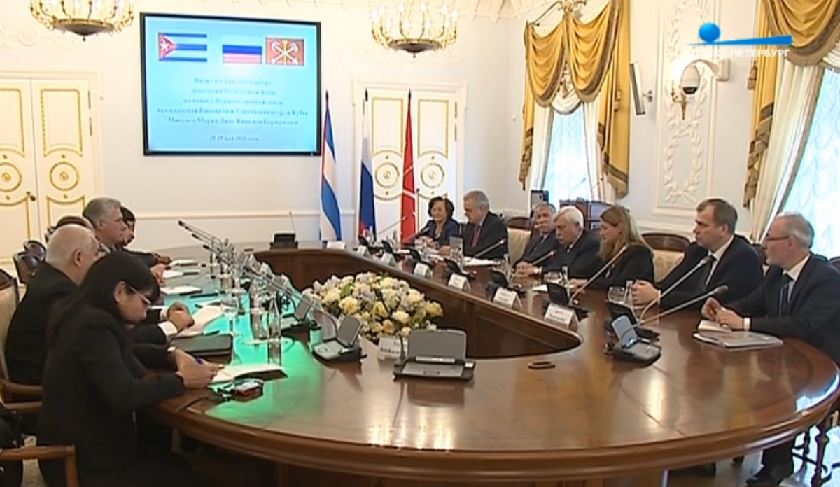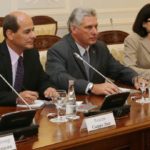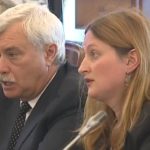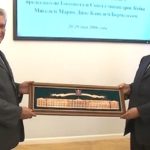
Cuba gets green light to reopen consulate in the former Leningrad
Nearing the end of his visit to Russia, Cuba’s vice president Miguel Díaz-Canel on Saturday (May 28) received assurances from the Mayor of St. Petersburg, Georgi Poltavchenko, that Cuba may reopen a consulate and install a tourist office in that city.
A Cuban consulate there shut down in 1991, when the Soviet Union ceased to exist. [For background in Progreso Weekly on Cuba’s bid to reopen it, click here.]
Known as Leningrad until 1991, St. Petersburg (pop. 5 million) is Russia’s second-largest city, after Moscow. It is also considered to be Russia’s cultural capital.
Díaz-Canel’s visit was part business, part courtesy call. He told his host that he had wanted all his life to visit the historical city, and the Mayor promised to arrange for an excursion on the Neva River the following day.
The Russian Revolution that overthrew Tsar Nicholas II broke out in 1917, when the city was named Petrograd.
On Saturday, the Cuban delegation and the Russian city’s officials met for an hour to discuss trade expansion, student exchanges and a strengthening of cultural ties.
“We are ready to provide full support” for the consulate, Poltavchenko told his guest, “and will make available an office for the Havanatur tourist agency.” Premises have already been selected, he said.
“We are eager to open a consulate,” said Díaz-Canel. “It is a necessity for us. St. Petersburg is a [Russian] region with which we have major trade exchanges. We shall open a consulate as soon as practical.”
Trade possibilities include joint ventures in the fields of medicine, biotechnology and pharmaceuticals, according to a press release on the Mayor’s website. And “great opportunities for cooperation exist in the field of education.”
Today, 100 young Cubans are studying in Russian high schools, of whom only five study in St. Petersburg, the press release said. Poltavchenko said that his city “will assist in the organization of educational institutions in Cuba, and the teaching of the Russian language and Russian culture to Cuban students so they may prepare to apply for admission to Russian universities.”
Díaz-Canel replied that Cuba plans to send 200 students to Russian high schools in 2017.
In terms of expanded cultural exchanges, Díaz-Canel cited a concert in Havana by St. Petersburg’s Mariinsky Theater orchestra two months ago as a landmark event. At present, the opening in Havana of an exhibition hall of St. Petersburg’s State Russian Museum is under discussion. Poltavchenko suggested sending to Cuba exhibitions and performances by St. Petersburg artists and collectives.
At the end of the meeting, the Mayor presented Díaz-Canel with a panel showing the Smolny building complex, which, in addition to containing the Mayor’s office, houses the Smolny Institute of the Russian Academy of Education.
[Video of the meeting, with Russian narration, can be accessed here.]
Photo at top: Cuban delegation meeting with the Mayor of St. Petersburg and his staff last week.




